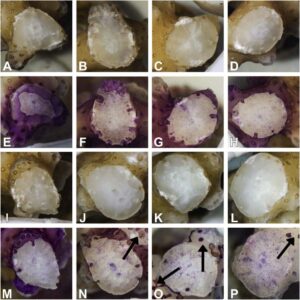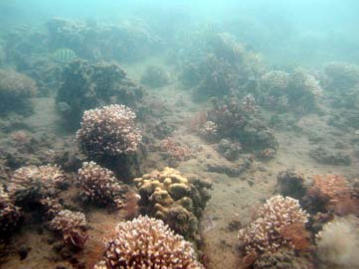
NCCOS scientists and their colleagues at NOAA’s Office of Response and Restoration have determined the toxicity of Louisiana sweet crude oil on a stony coral (Pocillopora damicornis) native to the Pacific Ocean.
The study found that coral exposed to a mixture of crude oil and seawater for 96 hours had great difficulty regenerating tissue. Shorter term exposures (6–24 hour durations) to the crude oil–seawater mixture also had a negative effect on coral tissue regeneration.
These data, when combined with ecotoxicological values for other coral reef species, will inform species sensitivity models and natural resource damage assessments for oil spills in reef ecosystems. Responses to the Deepwater Horizon event in 2010 and other recent oil spills have highlighted the need for crude oil ecotoxicological threshold data for shallow water corals, such as P. damicornis.
The experiment evaluated impacts of the crude oil–seawater mixture on five indicators of P. damicornis health: tissue integrity, tissue color, polyp retraction, the ability to regenerate tissue, and symbiont chlorophyll-a fluorescence. Tissue regeneration proved to be a most sensitive measure of crude oil exposure, with coral sensitivity in the low parts per billion range.

Citation: May, Lisa A., Athena R. Burnett, Carl V. Miller, Emily Pisarski, and Cheryl M. Woodley. 2020. Effect of Louisiana sweet crude oil on a Pacific coral, Pocillopora damicornis. Aquatic Toxicology 222, May 2020, 105454. https://doi.org/10.1016/j.aquatox.2020.105454
